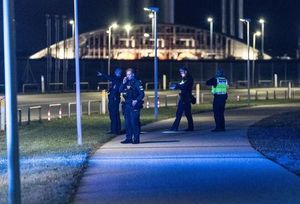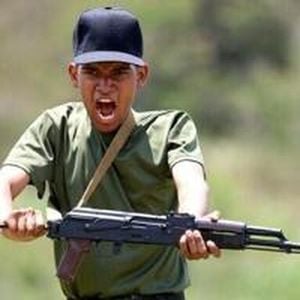Football fans across the globe are gearing up for what promises to be a historic and, at times, controversial 2026 FIFA World Cup. With Mexico City’s iconic Estadio Banorte—better known as Estadio Azteca—set to make history as the only stadium to host matches in three separate World Cup editions, anticipation is running high. But as preparations ramp up on both sides of the border, recent events and ongoing concerns have cast a complex shadow over the world’s biggest sporting spectacle.
Estadio Azteca, steeped in football lore, is no stranger to the world stage. Located in the heart of Mexico City, this legendary venue has already played host to two FIFA World Cup finals in 1970 and 1986. Who could forget Diego Maradona’s infamous Hand of God goal during the ’86 tournament, a moment etched into football history and replayed endlessly in highlight reels? Now, as the 2026 tournament approaches, Estadio Azteca—officially Estadio Banorte—will welcome fans once more, hosting five matches, including the tournament’s opening game and Mexico’s final group stage clash.
For those planning a pilgrimage to this football cathedral, the experience promises to be unforgettable. Whether you’re a casual traveler or a diehard supporter, the stadium’s legacy as the only venue to feature in three different World Cups is a testament to its enduring significance in the sport.
Yet, while the spotlight glows on historic venues and the feverish buildup to kickoff, the football world is also grappling with a host of off-field challenges. The recently concluded FIFA Club World Cup in the United States provided a preview of both the excitement and the headaches that may accompany the 2026 tournament. FIFA received a staggering 145 reports related to human rights concerns during the Club World Cup, many submitted by fans through the governing body’s own grievance portal.
Chief among these complaints were 37 reports tied to U.S. government policies and enforcement, particularly the presence—real or perceived—of U.S. Customs and Border Protection (CBP) and Immigration and Customs Enforcement (ICE) officials at stadiums. The debate was fueled further by a now-deleted CBP Facebook post promising agents would be “suited and booted ready to provide security for the first round of games.” FIFA officials quickly intervened, expressing concern over the public reaction. A Department of Homeland Security spokesperson later insisted, “Neither ICE nor CBP conducted any enforcement during the FIFA Club World Cup. This is another case of fear-mongering. Federal Law enforcement was critical in securing the event and helped keep it safe for everyone involved, as they do with every major sporting event, including the Super Bowl.”
But the government’s assurances did little to quell the anxieties of many supporters. Some fans openly questioned whether the tournament—and next summer’s World Cup—should take place in the U.S., citing the policies and actions of the administration under President Trump. FIFA, for its part, stated that it had implemented a human rights due diligence system and reporting mechanism for the Club World Cup, emphasizing, “FIFA’s receipt of and response to these human rights reports is a positive indicator of sound human rights due diligence. Every tournament of this magnitude brings alleged human rights issues, and it is FIFA’s responsibility as a serious governing body and competition organizer to address them in a professional and timely manner.”
Player and fan welfare was also thrust into the spotlight, as extreme heat became a recurring theme throughout the Club World Cup. In Cincinnati, temperatures soared so high that Borussia Dortmund’s substitutes watched from indoors. Players and fans alike struggled with the midday sun, with long lines forming at water stations and steep prices for bottled water compounding frustrations. FIFA opened 25 investigations into unsafe heat conditions, and the pattern is likely to repeat itself during the summer World Cup, raising questions about scheduling and stadium preparedness.
Accessibility and discrimination issues also surfaced, with over 20 complaints lodged. Fans raised concerns about everything from stadium access to the reduction of anti-racism and inclusion messaging by FIFA—a move that campaigners suspect may be linked to political shifts in the U.S. administration. Additional reports focused on workers’ rights, safeguarding, harassment, freedom of speech, and religious accommodations, including a lack of prayer rooms at some venues. During a Club World Cup match in Monterrey, FIFA warned supporters that the game could be suspended after homophobic chants were heard, and Real Madrid’s Antonio Rudiger alleged racial abuse from Pachuca defender Gustavo Cabral, though an investigation was closed due to lack of evidence.
As the world’s attention turns to the 2026 tournament, security and logistics are front of mind for host cities. Police departments across the U.S. are bracing for the influx, with many restricting vacation days for officers throughout the tournament period, from May 28 to July 26, 2026. The Dallas Police Department, for example, has informed staff that “no discretionary leave will be approved” during the World Cup, while Santa Clara’s force has adopted a similar approach, with officers voluntarily agreeing to be at the department’s discretion for reorganization. Lieutenant Eric Lagergren of the Santa Clara Police Department explained, “To ensure the Santa Clara Police Department achieves its priority of public safety, we will be implementing an operational strategy that requires the full commitment of our personnel.”
The logistical challenges are compounded by the fact that the World Cup will coincide with the 250th anniversary of the United States Declaration of Independence on July 4, 2026, adding even more complexity to event planning and security.
Meanwhile, ticket access and affordability have emerged as hot-button issues, especially in New York City, where mayoral candidate Zohran Mamdani is campaigning against FIFA’s dynamic pricing for World Cup tickets. Mamdani is pushing for a cap on resale prices and advocating that 15% of tickets be reserved for local residents at discounted rates, aiming to make the tournament accessible to a broader audience. His campaign gained traction after FIFA announced that over 4.5 million people had entered the pre-sale draw for the first phase of ticket sales, with some non-hospitality tickets reportedly fetching up to $6,000. Incumbent mayor Eric Adams, while touting the economic benefits of hosting the final at MetLife Stadium, sidestepped the pricing controversy, stating, “We want every New Yorker to be able to get in on the fun.”
Across the Atlantic, World Cup qualification drama is unfolding as well. South Africa’s hopes of returning to the men’s tournament for the first time since 2010 are in jeopardy after fielding ineligible midfielder Teboho Mokoena during a qualifier against Lesotho. According to FIFA’s disciplinary code, the match is at risk of being forfeited as a 3-0 loss. South Africa Football Association chief executive Lydia Monyepao confirmed, “We are preparing our response to the FIFA disciplinary committee because that is what ultimately is required from us as an association.” Rivals like Benin are watching closely, with coach Gernot Rohr urging, “FIFA should now very quickly give the decision.” The outcome could throw Group C wide open and change the African qualification landscape.
With so much at stake both on and off the pitch, the countdown to the 2026 FIFA World Cup is shaping up to be as dramatic and unpredictable as the tournament itself. From historic venues and record ticket demand to political controversies and logistical hurdles, the world’s game is once again at the center of global attention. As fans, players, and officials prepare for kickoff, all eyes will be on how these challenges are addressed, ensuring that football’s greatest show lives up to its billing—both in the stands and beyond.




